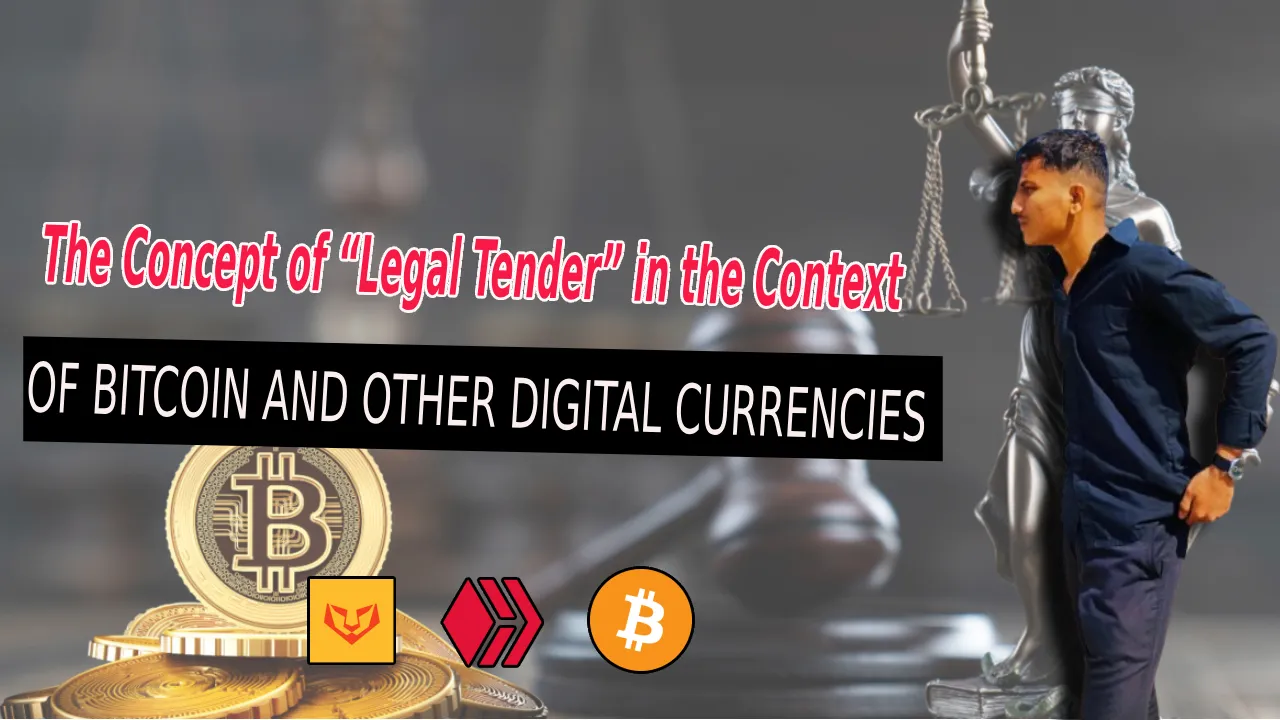Faiz is reporting, and in the Bitcoin World, we often hear the word "legal tender," but we never try to think more about that word. I am going to share the examples, and it is USD, so the US dollar is the legal tender in the United States; similarly, INR is legal tender in India. These are the currencies that are recognised by the Government. Bitcoin, which is a new type of money, is not a legal tender. Yes, it can be regulated and legalized in countries, but that does not mean that Bitcoin is legal tender; instead, the world governments call it an asset or property.

In the case of currencies like the Euro, USD, and INR, people know that these currencies a genuine because they are backed by the government. And here the government is a middleman that has full control over the usage as well as printing. So people have confidence that if something happens, then there is a government that will take charge and help the people, that is why they believe in these currencies, and they have full confidence in fiat. Which means if something is legal tender, then the reputation increases automatically.
Now, come to Bitcoin, El Salvador is the first ever country that announced Bitcoin as a legal tender, and this is a bold and big move because it is not easy to make any virtual currency a legal tender. In some countries, you can spend Bitcoin or Ethereum to buy some things, like if you are buying a car with Ethereum or even if you are buying a coffee with Bitcoin, it does not make Bitcoin or Ethereum a legal tender. If you are buying something using cryptocurrency in a country where Crypto is regulated or legal, which means it is your private agreement. It is a private agreement between a buyer and seller, for example, if I am giving some product to you, and in return, you are giving me a cryptocurrency.
El Salvador accepts Bitcoin as a legal tender, and this is great to attract the tech investment from globally, but there are challenges too, such as solving the crypto disputes, volatility, and user protection. So these are the questions, and you can say issues, what governments do that categorise cryptocurrency as a property or digital asset, which means they have value but are not considered as money. And people are free to use it as a private agreement.
It is difficult for Bitcoin to yet a complete replacement of money for the world government, but they are like an asset for property according to the world's government. But the good thing is that the crypto space is growing, so in the future, the world's governments will have to rethink this matter. Have a wonderful day ahead, and now Faiz is signing off. I am looking forward to seeing your comments, and you know I encourage quality engagement, so good comments will be rewarded.
